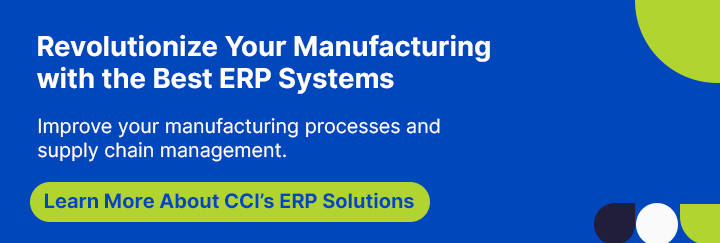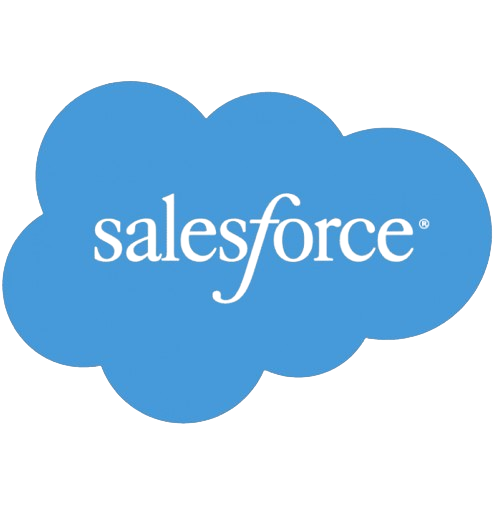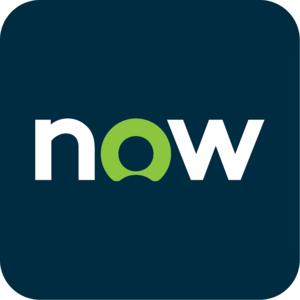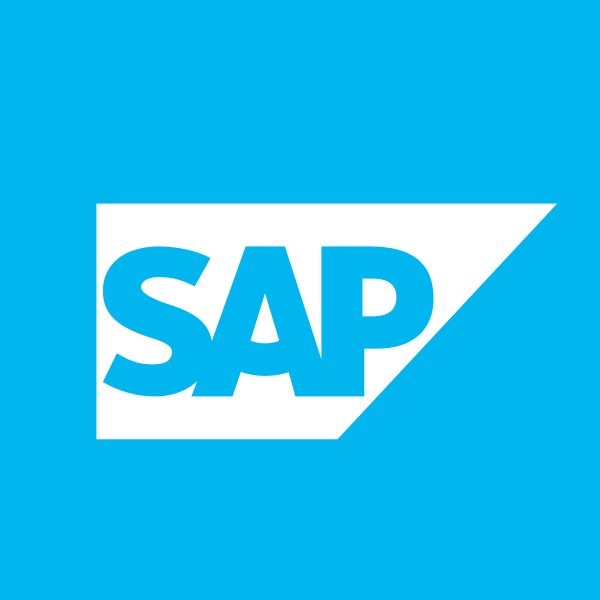Best ERP Systems for the Food and Beverage Industry 2026
Updated on March 3, 2026
The food and beverage industry has always been about more than just feeding people: crafting experiences, ensuring safety, and delivering products people can trust. But there’s an intricate sourcing, production, quality control, and delivery process behind every delicious meal or refreshing drink. Managing these operations can be monumental, especially with increasing consumer demand, tightening regulations, and evolving market trends.
In 2026, the best way for food and beverage businesses to meet these challenges head-on is by using Enterprise Resource Planning (ERP) systems. ERPs are the silent heroes working behind the scenes, ensuring everything runs smoothly—from tracking raw materials to ensuring the final product reaches consumers. This blog will explore why the food and beverage industry needs ERP systems now more than ever. We will also highlight the seven best ERP systems that food and beverage businesses should consider for 2026, each offering unique strengths that can revolutionize your business’s operations.
>> Related Post: Best ERP Systems for Small Businesses in 2026
The Need for ERP in the Food & Beverage Industry:
Running a food and beverage business is like orchestrating a complex symphony. Everything has to come together at the right time, and any misstep can lead to lost profits or damage your reputation. There must be room for inefficiency in an industry with tight margins and fierce competition.
Here’s why ERP systems are essential for the food and beverage industry:
- Managing Perishables: Perishable inventory is a constant challenge. Knowing exactly how much stock you have, how long it will last, and where it’s needed can save thousands in wasted products. An ERP system helps manage this by tracking inventory in real time and alerting you to expiration dates and stock shortages.
- Ensuring Compliance: Food safety is paramount. Laws and regulations surrounding food production and labeling are ever-changing, and failure to comply can result in hefty fines or, worse, harm to consumers. ERP systems help businesses stay compliant by keeping track of all regulatory requirements and ensuring that quality checks are part of every production stage.
- Cost Efficiency: Every cent counts in an industry with thin profit margins. ERP systems help businesses cut costs by optimizing production schedules, reducing waste, and ensuring that all departments work together efficiently.
- Customer Satisfaction: Understanding customer needs and predicting demand is crucial in today’s fast-moving market. An ERP system helps track customer orders, preferences, and feedback so businesses can adjust production accordingly and avoid overproduction or shortages.
- Supply Chain Visibility: The food and beverage supply chain can be incredibly complex, involving multiple suppliers, manufacturers, and distributors. ERPs provide complete visibility into every part of the supply chain, allowing businesses to detect bottlenecks, forecast future demand, and ensure that production stays on track.
>> Related Post: Best ERP Software for the Construction Industry in 2026
7 Best Food & Beverage ERP Software/Systems in 2026:
1. Snowflake Professional Services
Snowflake is a cloud-based data platform renowned for its data warehousing, analytics, and integration capabilities. While not traditionally classified as an ERP, Snowflake’s services significantly enhance ERP systems’ performance by providing real-time, scalable data storage and analysis solutions. This makes it a perfect complement to ERP systems in the food and beverage sector.
Benefits:
- Delivers real-time data analytics that allows businesses to respond instantly to changing conditions.
- It offers nearly infinite scalability, making it a fit for businesses of all sizes.
- Provides advanced data security, ensuring that sensitive business information is protected.
How It Helps the Food & Beverage Industry:
In the food and beverage industry, real-time data is invaluable. Snowflake helps by offering deep insights into production efficiency, sales trends, and inventory management. With these insights, businesses can forecast demand more accurately, adjust production schedules in real-time, and avoid costly waste.
For example, suppose you’re a beverage company that sees a sudden spike in orders during a hot summer week. In that case, Snowflake’s data insights can help you ramp up production quickly without overproducing. On the other hand, if an ingredient shortage is imminent, you can plan accordingly and avoid disruption.
Pricing:
Snowflake’s pricing model is based on a pay-per-use structure, meaning businesses only pay for the storage and computing resources they use. This flexibility allows companies to start small and scale their usage as their data needs grow.
2. Workday
Workday is a cloud-based ERP solution focusing primarily on human capital management (HCM) and financial management. It offers businesses a unified platform to manage their workforce and finances with real-time data and advanced analytics.
Benefits:
- Simplifies workforce management with features like payroll, employee scheduling, and compliance.
- Offers advanced financial planning and reporting tools.
- Provides real-time visibility into business performance.
How It Helps the Food & Beverage Industry:
Workday’s HCM and financial management tools make it an excellent choice for food and beverage companies with large, diverse workforces. Within one system, hourly workers can be managed, shifts tracked, payroll ensured promptly, and labor laws complied with. Additionally, its financial management tools help ensure that all costs—from ingredient sourcing to employee wages—are accounted for, keeping your business financially healthy.
Imagine running a large-scale food manufacturing plant with hundreds of workers. Workday’s system can help you track who is on the floor, who is on break, and whether any compliance issues with work hours arise, all in real-time. This reduces the risk of labor law violations and keeps operations running smoothly.
Pricing:
Workday operates on a subscription-based pricing model, with costs varying depending on the modules chosen and the business size.
>> Related Post: Best ERP Systems in 2026
3. SAP S/4HANA
SAP S/4HANA is one of the most advanced ERP systems on the market. It is designed to handle complex business processes in real-time and is particularly well-suited to industries that require heavy data processing, like food and beverage manufacturing.
Benefits:
- Provides real-time visibility into every aspect of your business.
- Integrates artificial intelligence (AI) and machine learning to optimize decision-making.
- Organizes supply chain management and inventory control.
How It Helps the Food & Beverage Industry:
SAP S/4HANA is perfect for managing food and beverage companies’ supply chains and production processes. It offers insights into raw material usage, production efficiency, and inventory levels, ensuring businesses can quickly respond to demand shifts or supply chain disruptions.
For example, a bakery using SAP S/4HANA can track its flour supply from the supplier to the factory floor, ensuring that no batches are delayed due to ingredient shortages. The system can also predict when reorders are necessary, avoiding downtime.
Pricing:
SAP S/4HANA pricing is flexible and depends on the size of the business, the number of users, and the specific modules required.
4. Oracle ERP Cloud
Oracle ERP Cloud is a fully cloud-based solution that provides financial management, procurement, and project management tools. It is ideal for complex industries like food and beverage manufacturing.
Benefits:
- Allows businesses to manage finances, procurement, and projects in one platform.
- It offers a highly customizable solution that can help your business grow.
- Provides powerful analytics to help businesses make data-driven decisions.
How It Helps the Food & Beverage Industry:
Oracle ERP Cloud’s comprehensive financial management capabilities ensure that food and beverage businesses can keep track of their spending, profits, and losses. With real-time insights into procurement, companies can source ingredients more efficiently, ensuring that production continues without delays.
Imagine a beverage company using Oracle ERP Cloud. It can track every expense, from the cost of sourcing ingredients to the delivery of finished products, providing a clear picture of profitability. This level of visibility allows for more accurate financial planning and budgeting.
Pricing:
Oracle ERP Cloud pricing is based on the number of users and the specific modules chosen. Pricing is typically subscription-based.
>> Related Post: Latest ERP Trends in 2026
5. Rise with SAP
Rise with SAP is a comprehensive digital transformation solution designed to help businesses move their existing ERP systems to the cloud while incorporating SAP’s expertise in industry-specific best practices.
Benefits:
- Helps businesses transition smoothly from on-premises systems to cloud-based ERP.
- Includes industry-specific templates and best practices to accelerate implementation.
- Offers tools for continuous improvement and optimization.
How It Helps the Food & Beverage Industry:
For businesses looking to modernize their ERP systems, Rise with SAP is an excellent choice. The food and beverage industry often deals with outdated and inefficient legacy systems. Rise with SAP helps companies move to the cloud, ensuring their systems are future-proof and capable of handling modern challenges, such as changing consumer demands and stricter regulations.
For example, a dairy company using an outdated system can switch to Rise with SAP, gaining the ability to track production, sales, and compliance in real time while accessing the system from anywhere.
Pricing:
Pricing for Rise with SAP depends on the business’s specific needs and the required service level. SAP offers customized solutions to meet varying business requirements.
6. ServiceNow ITSM
ServiceNow IT Service Management (ITSM) is an enterprise cloud solution that automates IT processes and service delivery. It ensures that technology infrastructure stays operational and supports business goals.
Benefits:
- Automates IT operations.
- Provides real-time visibility into IT infrastructure performance.
- Ensures fast resolution of IT issues, minimizing downtime.
How It Helps the Food & Beverage Industry:
Maintaining IT infrastructure is crucial for large food and beverage businesses. ServiceNow ITSM helps companies to automate IT processes and monitor systems for potential issues. This reduces the risk of system downtime and ensures that production, supply chains, and order processing remain uninterrupted.
Imagine an ERP system going offline during a critical production run. With ServiceNow ITSM in place, the IT team would receive immediate alerts, enabling them to resolve the issue before it causes significant delays or revenue loss.
Pricing:
ServiceNow ITSM operates on a subscription-based pricing model. The cost depends on the size of the business and the specific features required.
7. Microsoft Dynamics 365
Microsoft Dynamics 365 is a versatile ERP solution that integrates with other Microsoft products. It offers financial management, supply chain management, and customer relationship management (CRM) tools.
Benefits:
- Easily integrates with the Microsoft ecosystem.
- Offers a range of customizable modules, from finance to supply chain management.
- Provides AI-driven insights to help businesses optimize operations.
How It Helps the Food & Beverage Industry:
Microsoft Dynamics 365 offers a comprehensive solution for managing finances, customer relationships, and supply chains. For food and beverage companies, this means better control over production processes, more efficient order management, and improved customer satisfaction.
For instance, a coffee company can use Microsoft Dynamics 365 to manage its entire supply chain, from sourcing beans to delivering the final product to retailers. The system can track customer preferences, ensuring the company produces the right blend at the right time.
Pricing:
Microsoft Dynamics 365 pricing is based on a per-user, per-month subscription model. The cost varies depending on the modules chosen and the business size.
>> Related Post: Best ERP Software for the Pharmaceuticals Industry in 2026
ERP for the Food & Beverage Industry Offered by CCI
At Cloud Consulting Inc. (CCI), we specialize in helping food and beverage businesses find the right ERP solutions for their needs. Our services include expert consultation, system implementation, and ongoing support to ensure your ERP system works smoothly and meets the industry’s unique demands.
Our expertise with systems like Snowflake, SAP, ServiceNow, and Microsoft Dynamics ensures that we can help you choose the right system and customize it to fit your business operations. Whether you need help managing inventory, ensuring compliance, or improving production efficiency, CCI supports you at every step.
Conclusion
The food and beverage industry faces unique challenges that demand innovative solutions. ERP systems will play an even more critical role in ensuring businesses can adapt to changing regulations, manage complex supply chains, and meet growing consumer expectations. From managing perishable goods to ensuring compliance with safety regulations, the right ERP system can make all the difference.
The seven ERP systems highlighted in this blog offer various strengths, allowing businesses to choose the best solution. Whether you’re a small craft brewery or a large multinational food processor, these ERPs provide the tools you need to stay competitive, improve efficiency, and ensure the safety and quality of your products.
FAQs: Best ERP systems for food & beverage industry 2026
1. What is an ERP system, and why does the food and beverage industry need it?
An ERP (Enterprise Resource Planning) system is a software solution that helps businesses manage and integrate key functions like supply chain, production, finance, and compliance. In the food and beverage industry, where production involves perishable goods, strict safety regulations, and fluctuating consumer demands, an ERP system helps streamline processes, maintain quality control, and ensure your operations run smoothly without missing any key steps. Without it, managing complex supply chains and regulatory compliance becomes overwhelming.
2. How do I know which ERP system is right for my food and beverage business?
The right ERP system depends on your business size, needs, and goals. For example, if you’re focused on scalability and growing your production, systems like SAP S/4HANA and Oracle ERP Cloud may be ideal. If you prioritize managing IT infrastructure and want a user-friendly interface, ServiceNow ITSM could be a good fit. At CCI, we help you assess your needs and choose the ERP solution that will best support your business goals.
3. How does Snowflake Professional Services fit into the food and beverage industry?
Snowflake Professional Services enables businesses to harness the power of data by creating a unified platform where all your data can be stored, accessed, and analyzed in real-time. For food and beverage companies, this is especially helpful in tracking production, monitoring supply chains, and understanding customer preferences. Snowflake’s ability to handle massive amounts of data ensures that your company can make quick, data-driven decisions, which is crucial in an industry where timing and efficiency are everything.
4. What are the benefits of using an ERP system for food safety compliance?
ERP systems like SAP S/4HANA and Microsoft Dynamics 365 come with built-in tools to ensure your food and beverage business remains compliant with ever-changing safety regulations. These systems track everything from raw material sourcing to the production line, ensuring that every step adheres to safety standards. Additionally, they provide real-time data and reporting, which is essential for audits and meeting government requirements. Using an ERP system greatly reduces the risk of fines and recalls, which can damage your reputation and finances.
5. Can ERP systems help improve sustainability efforts in the food and beverage industry?
Yes, ERP systems like Oracle ERP Cloud and Deacom offer tools to help companies monitor their environmental impact. By tracking resource use, waste management, and energy consumption, these systems can help you identify areas where you can reduce waste or energy use. For example, you can use an ERP system to monitor the water and energy consumption in your production facilities and make changes to reduce your carbon footprint. Sustainability is not only good for the environment but also enhances your brand’s reputation with eco-conscious consumers.









